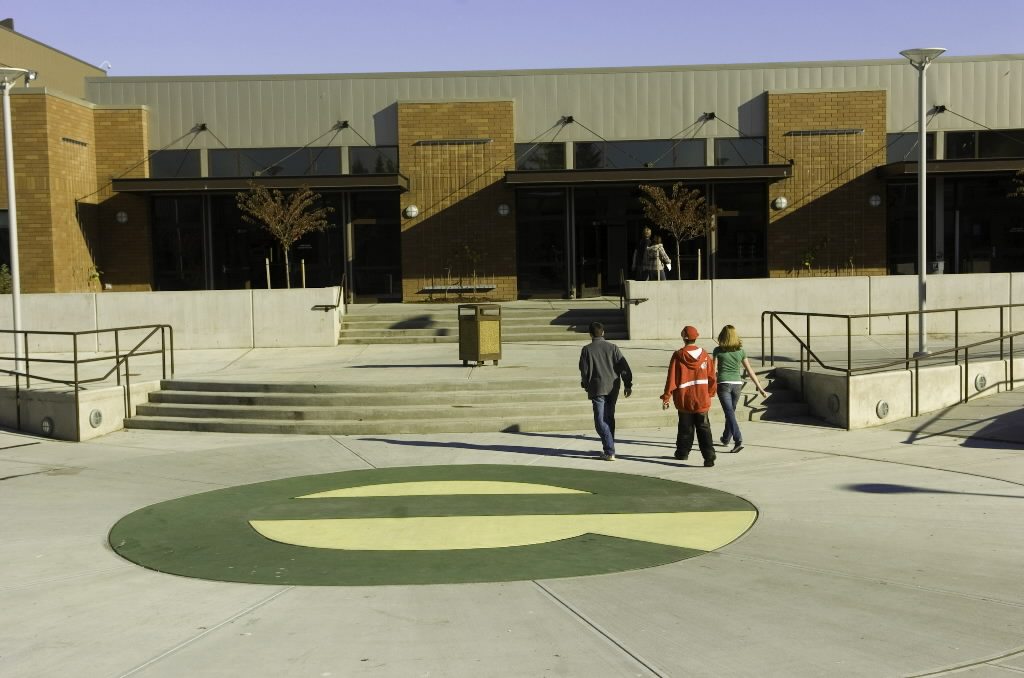Officials from Evergreen Public Schools likely are counting down the hours until the Feb. 14 special election. People’s jobs and student programs will be decided upon when ballots for an operations levy election are counted that day.
The district is asking voters to renew its property tax levy for another four years, adding slight increases each year. Ballots will arrive in the mail next week and must be postmarked for return no later than Feb. 14.
Evergreen Superintendent John Deeder and Chief Financial Officer Mike Merlino on Wednesday fielded questions from district residents during a live broadcast, which was streamed online and on community cable TV.
The Evergreen school board in December voted for a four-year levy measure totaling about $180 million. The district would receive $43.3 million in 2013, $44.1 million in 2014, $45.4 million in 2015 and $46.7 million in 2016, according to district documents.
School districts in Washington don’t set tax rates. They ask for total amounts per year. The county then sets tax rates based on the latest property value assessments.
The projected tax rates gradually would increase from $4.19 per $1,000 of assessed home value in 2013 to $4.51 in 2016. This year’s rate — set under the levy amounts approved by voters in 2010 — is $3.84 per $1,000.
For a median-priced home in the school district — currently that’s one worth $171,000 — those rates would result in tax bills of $685 in 2013, rising to $738 in 2016. Those amounts assume that the median value of a home here will decrease for the next three years and then recover to its 2012 level, according to district documents.
Devastating loss
Local levy money pays for nearly one-fifth of the district’s expenses, Merlino, the financial officer, said during the broadcast.
Losing that would be devastating to the district, Deeder, the superintendent, said. If the levy fails in February, the school board could choose to run it again in April. If that also failed, the district would have to operate solely on the money it gets from the state, Deeder said.
School districts also get some federal money, but it usually is designated for very specific programs, such as special education.
A failed levy election wouldn’t just mean losing $40-plus million each year in the coming years, Deeder said. It would also mean losing an additional $13.6 million in expected levy equalization — state money intended to level the playing field between property-rich and property-poor districts statewide.
The district has cut $26 million from its expenditures over the last four years of recession-affected state budgets, Deeder said. A failed levy would mean cutting twice that amount in just one year, which would have very noticeable results for staff and students, he said.
“There’s no way we could avoid big layoffs,” Deeder said.
The ultimate decision where to cut would lie with the school board, but it’s likely that some 200 teachers and 100 support staff would have to be laid off, Deeder said. That would mean two to 10 fewer teachers at each school, which would result in class sizes of more than 30 kids in elementary schools and more than 35 students in high schools, he said.
Administration cuts
The district’s administration has been trimmed back nearly as far as it can go, Deeder said. It has been reduced by about 40 percent in the last four years, he said.
This month’s decision by the State Supreme Court, that the state must fully pay for K-12 schools’ basic expenses by 2018, does not affect this levy, Deeder said. Nothing in the comments coming from the Legislature makes school officials think that it will follow that directive to the letter anytime soon, he said.
The small annual bumps in the tax rate are to compensate for inflation, especially in fuel, electricity and insurance rates, Deeder said.
An operations levy pays for classroom expenses such as teachers’ salaries, textbooks and highly capable programs. It also supports transportation of kids who live closer than one mile from a school but would have to cross dangerous highways to get to school. It also helps pay for athletics.
The levy is not a new tax in addition to current bills. It would replace the one in place now.
Jacques Von Lunen: 360-735-4515; jacques.vonlunen//www.twitter.com/col_schools.



